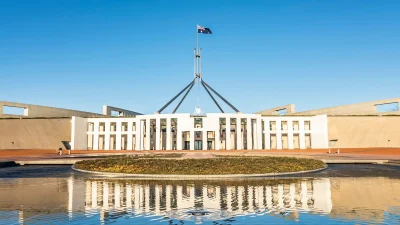Aussie funds hit hardest by January’s losses


Australian equity funds bore the brunt of the sell-off that hit markets in January after almost every fund focused on domestic shares posted a loss last month, FE fundinfo data shows.
Within the Australian Core Strategies universe, four of last month’s five worst-performing sectors focused on domestic assets.
Across the 2,027 funds in the universe which had January performance data available, 83% of funds made a loss with Australia-focused ones coming out badly.
The ACS Equity Australia Geared sector sat at the bottom of January’s performance table after its average member fell by 10%. It is followed by ACS Property Australia Listed (down 7.9%), ACS Equity Australia Small/Mid Cap (down 7.7%), ACS Equity Global Small/Mid Cap (down 6.5%) and ACS Equity Australia (down 5.8%).
The chart below shows how the month looks when broken down by fund sector – the percentage of each sector making positive returns last month is in grey while percentage making a loss is in blue.
Positive and negative funds in January, by sector
Every fund we looked at in the ACS Equity Australia Equity Income, ACS Fixed Interest Australia/Global and ACS Property Australia Listed sectors was down in January.
Things were a little better among ACS Equity Australia, where 98.7% of funds lost money. Three funds from this sector made positive returns: BetaShares Australian Equities Bear Hedge (up 6.3%), ETFS SelfWealth SMSF Leaders ETF (up 1.2%) and APSEC Atlantic Pacific Australian Equity (up 0.5%).
Three more members of the ACS Equity Australia Small/Mid Cap sector – representing 3% of the peer group – turned a profit. These were SGH Emerging Companies (up 3.5%), Perennial Microcap Resources Trust (up 1.4) and Cromwell Phoenix Opportunities (up 0.2%).
Global equities fell 4.6% in US dollar terms in January as investors were spooked by rising inflation and the prospect of higher interest rates from the world’s major central banks.
The ASX 300 fared even worse, falling 6.5% (in Australian dollar terms).
Performance of MSCI ACWI versus ASX 300 over one year to 31 January
Strategists at the BlackRock Investment Institute argued that this reaction to higher rates might be overdone, but warned investors to prepare for rocky markets over the near term.
“Inflation keeps surprising to the upside, and central banks are quickly pulling back emergency stimulus. Yet markets are ratcheting up expectations of future rate hikes ever higher,” BlackRock said.
“Market expectations may go higher yet, but we think they are already overdone: fewer rate hikes will actually be delivered. We believe central banks are talking tough but ultimately will acknowledge that fighting inflation by aggressively hiking will come at too high a cost to growth.
“Why? Today’s inflation is driven by supply bottlenecks, energy mismatches and resources reallocation. This is why we see the eventual policy response as muted – but brace for bouts of volatility.”
Recommended for you
There has been a “noticeable uptick” in the use of smart beta ETFs by advisers and sophisticated investors, according to Betashares, who are using the vehicles to take control of their portfolio construction.
The FSC has announced 15 proposals ahead of the federal election which it hopes will increase the competitiveness of Australia’s financial services sector, including six with a focus on fund managers.
Regal Funds Management saw total net inflows of $2.1 billion during 2024, with flows primarily going into long/short equities and multistrategy vehicles.
There is growing divergence between institutional and retail investors in their enthusiasm towards equities, according to Bank of America, with retail sentiment being “unusually low” at the start of 2025.














